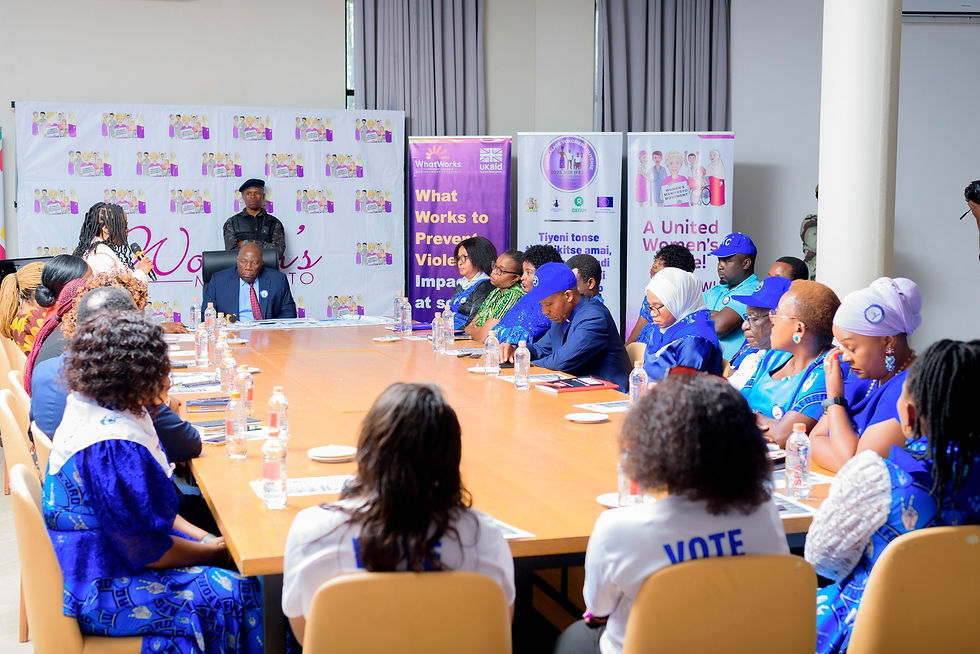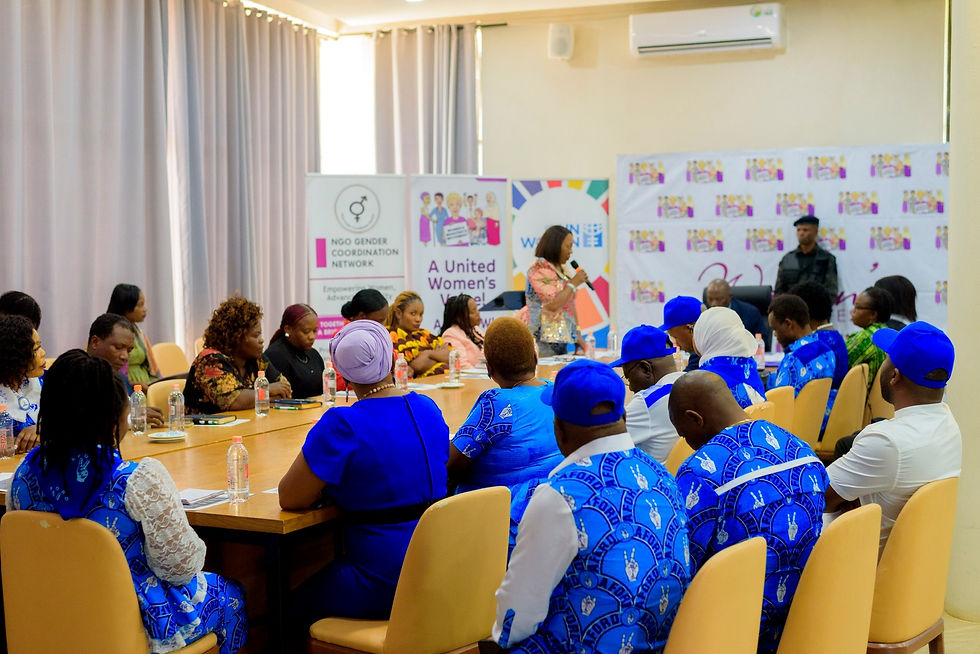AFORD President backs Women’s Manifesto, signs Commitment Card
- Wolrec

- Jul 26, 2025
- 2 min read
President of the Alliance for Democracy (AFORD), Enock Chihana, has officially endorsed the Women’s Manifesto, becoming the fourth part president to sign the Women’s Manifesto Commitment Card ahead of Malawi’s September 2025 General Elections.

He made the commitment in Lilongwe on Thursday where he met the Women’s Manifesto Movement (WMM), a coalition of civil society organizations advocating for women’s rights and gender-responsive governance.
The movement has been actively engaging political parties to commit to gender equality and the integration of women’s priorities into national development strategies.
Chihana, whose party has entered into an alliance with the Democratic Progressive Party (DPP) pledged to stand with women and champion their empowerment with a specific focus on agriculture as a key sector for food security and economic growth, if the alliance enter into government.
“I will stand with women. My goal is to empower them, especially in agriculture, to ensure food security. I will champion their empowerment at every level,” said Chihana during the ceremony.
The Women’s Manifesto, developed through nationwide consultations with women and girls, outlines key demands such as, qual representation in political and decision-making positions, economic empowerment and decent employment opportunities, access to quality education and healthcare, freedom from all forms of gender-based violence and legal reforms that promote and protect women’s rights among others.
Maggie Kathewera Banda, Executive Director of WOLREC and Coordinator of the Women’s Manifesto Movement, said Chihana’s signing sends a strong message to other leaders.
“When party presidents sign the Commitment Card, they give us a basis to track their progress and hold them accountable after elections. This isn’t just symbolic—it’s a political contract with the women of Malawi,” she emphasized.
The Women’s Manifesto Movement is engaging presidents of the six major political parties in the country, urging them to align their platforms with the priorities of Malawian women and demonstrate genuine political will toward transformative leadership.












Comments